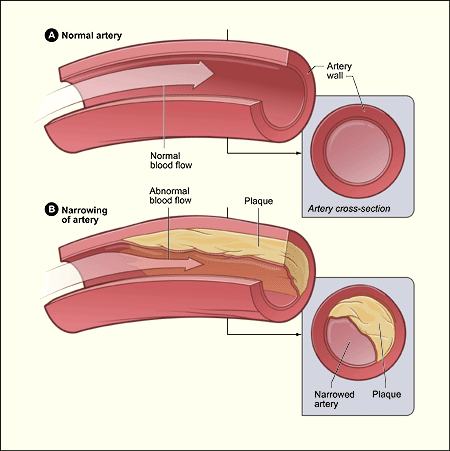Featured Health Support Products
Cholesterol Health Kit - Looking to lower cholesterol the natural way?* Try to support your bodys natural ability to maintain healthy cholesterol levels, try out our special Healthy Cholesterol Pak.
Cardio Well May Offer Support For:
- Healthy Cardiovascular Function*
- Promoting Healthy Cholesterol Levels*
- Healthy Arterial Walls & Vessels*
- Heart Circulation Health*
- Healthy Blood Pressure & Heart Pumping Action*
Cardio Well Classic May Offer Support For:
- Promoting Enhanced Healthy Heart Function*
- Normal & Healthy Circulation*
- Promoting Improved Cardiovascular Health*
Support for Cholesterol Health*
100% Money Back Guarantee!
What is High Cholesterol?
High cholesterol is the best known of all the many threats to a healthy heart.
When excess amounts of this waxy, fat-like substance build up along the walls of the arteries, you face a dramatically higher risk of a complete blockage, leading to a heart attack or stroke. At normal levels, cholesterol is not a bad thing.
On the contrary, cholesterol is an essential raw material used by the body to build cell walls and produce hormones such as estrogen and testosterone. The body produces its own supply of cholesterol in the liver, and it's found naturally in all animal products (such as meats, eggs, milk, and cheese). High Cholesterol poses a problem only when the body is unable to use or eliminate excessive supplies.
Read About Cholesterol Health...*
What Is Cholesterol?
To understand high blood cholesterol (ko-LES-ter-ol), it is important to know more about cholesterol.
- Cholesterol is a waxy, fat-like substance that is found in all cells of the body. Your body needs some cholesterol to work the right way. Your body makes all the cholesterol it needs.
- Cholesterol is also found in some of the foods you eat.
- Your body uses cholesterol to make hormones, vitamin D, and substances that help you digest foods.
Blood is watery, and cholesterol is fatty. Just like oil and water, the two do not mix. To travel in the bloodstream, cholesterol is carried in small packages called lipoproteins (lip-o-PRO-teens). The small packages are made of fat (lipid) on the inside and proteins on the outside. Two kinds of lipoproteins carry cholesterol throughout your body. It is important to have healthy levels of both:
- Low-density lipoprotein (LDL) cholesterol is sometimes called bad cholesterol.
- High LDL cholesterol leads to a buildup of cholesterol in arteries. The higher the LDL level in your blood, the greater chance you have of getting heart disease.
- High-density lipoprotein (HDL) cholesterol is sometimes called good cholesterol.
- HDL carries cholesterol from other parts of your body back to your liver. The liver removes the cholesterol from your body. The higher your HDL cholesterol level, the lower your chance of getting heart disease.
[Top]
What Is High Blood Cholesterol?
Too much cholesterol in the blood, or high blood cholesterol, can be serious. People with high blood cholesterol have a greater chance of getting heart disease. High blood cholesterol on its own does not cause symptoms, so many people are unaware that their cholesterol level is too high.
Cholesterol can build up in the walls of your arteries (blood vessels that carry blood from the heart to other parts of the body). This buildup of cholesterol is called plaque (plak). Over time, plaque can cause narrowing of the arteries. This is called atherosclerosis (ath-er-o-skler-O-sis), or hardening of the arteries.

The illustration shows a normal artery with normal blood flow (figure A) and an artery containing plaque buildup (figure B).
[Top]
Special arteries, called coronary arteries, bring blood to the heart. Narrowing of your coronary arteries due to plaque can stop or slow down the flow of blood to your heart. When the arteries narrow, the amount of oxygen-rich blood is decreased. This is called coronary heart disease (CHD). Large plaque areas can lead to chest pain called angina (an-JI-nuh or AN-juh-nuh). Angina happens when the heart does not receive enough oxygen-rich blood. Angina is a common symptom of CHD.
Some plaques have a thin covering and can burst (rupture), releasing cholesterol and fat into the bloodstream. The release of cholesterol and fat may cause your blood to clot. A clot can block the flow of blood. This blockage can cause angina or a heart attack.
Lowering your cholesterol level decreases your chance for having a plaque burst and cause a heart attack. Lowering cholesterol may also slow down, reduce, or even stop plaque from building up.
Plaque and resulting health problems can also occur in arteries elsewhere in the body.
September 2008
Source: http://www.nhlbi.nih.gov/health/dci/Diseases/Hbc/HBC_WhatIs.html
Read About Cholesterol Health...*
[Top]

 Get Well Natural, LLC
Get Well Natural, LLC  Kidney Function & Regeneration Health
Kidney Function & Regeneration Health  Platelet & Blood Cell Health
Platelet & Blood Cell Health  Prostate, Flow & Function Health
Prostate, Flow & Function Health  General Mind & Body Health
General Mind & Body Health  Heart, Cholesterol & Cardio Health
Heart, Cholesterol & Cardio Health  Allergy-Free Body
Allergy-Free Body  Anxiety & Stress
Anxiety & Stress  Blood Platelet Counts & Function
Blood Platelet Counts & Function  Blood Pressure Health
Blood Pressure Health  Kidney Health
Kidney Health  Immune System Health & Balance
Immune System Health & Balance  Prostate & Urinary Health Function
Prostate & Urinary Health Function  Blood Sugar Balance
Blood Sugar Balance  Cardiovascular Heart Health
Cardiovascular Heart Health  Detoxification & Healthy Cells
Detoxification & Healthy Cells  Women's Health
Women's Health  Liver Regeneration
Liver Regeneration  Pain-Free Body
Pain-Free Body  Water & Air Filtration
Water & Air Filtration 


